

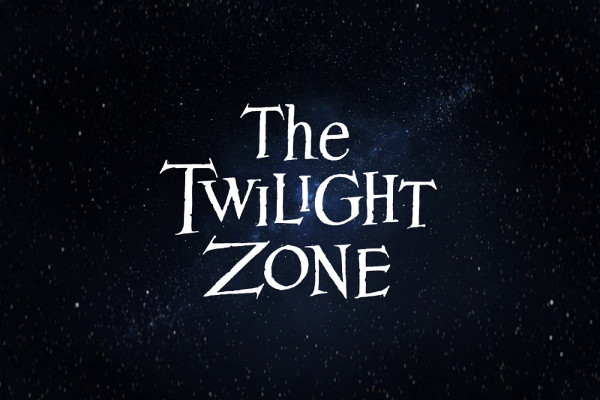
With Rod Serling's widow as an Executive Producer, the series has a lot of pedigree behind it, including some fairly high-profile guest stars. Titled "The Twilight Zone" onscreen, the only reason for its listing as "CBS All Access Twilight Zone" here is to distinguish it from the 1959-1964 series when ordering these articles. Please join me in ranking the season from worst to best.
Please note that while an effort has been made to avoid excess spoilers in this article, some major plot points are inevitably discussed in some of the entries, and seen in some of the screen capture images.
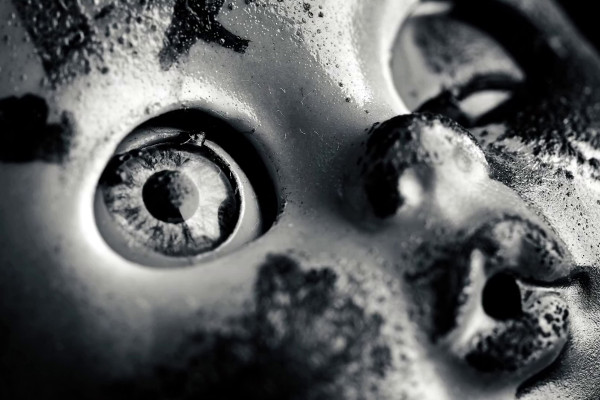
The CBS All Access version of The Twilight Zone is a much more overtly politicised show, dealing with voices that don't often get chance to be heard. It's a nice, modern idea for the series, and isn't a bad idea in and of itself. Yet while the original Serling series could often be accused of lack of subtlety in its weaker instalments, it made pains to wrap each subtext inside a story. With the CBS All Access series, frequently the subtext is the story.
There's several problems with this. By taking away any ambiguity whatsoever and making the points so overt, you're not providing "food for thought", you're expressly telling the audience what to think. Not only is this patronising, but the extreme polemic of the series risks alienating those that disagree... an episode that satirises Trump, for example, is perfectly fine, but in a series this "on the nose", you're just tempting the 46% of voters who cast in favour of Trump an excuse to look for the off switch. The Monsters Are Due On Maple Street never expressly stated whether its occupants were Republican or Democrat... they were just people, first and foremost.
Rod Serling once said, in a speech seemingly disregarded by the writers of this season, that "Whenever you write, whatever you write, never make the mistake of assuming the audience is any less intelligent than you are." Point of Origin is the worst offender of this "spoonfeeding" mentality, as Guatemalian housemaid Anna (Zabryna Guevara), finds herself in a detention centre with her privileged white female employer, Eve (Ginnifer Goodwin) and spells it all out to her: "Where did you think they would take us, to the Four Seasons? When it was just on the TV you could turn it off or change the channel."
Characters don't speak dialogue in this episode, they speak undistilled point making. Later another character will tell Eve that "You don't trust me, only because I don't look like you. Well we're the same." It's not that the points the episode makes are particularly bad, or necessarily wide of the mark, it's just the way these points are made eschews all attempts at naturalistic dialogue and assumes that the audience watching are idiots who can't comprehend the "subtext" until it's clearly - and repeatedly - spelt out to them.
Things do pick up when Eve is revealed to be not quite human, but even Jordan Peele as narrator gets in on the act, informing viewers that "we are all immigrants from somewhere", just in case any members of the audience missed the theme the first 287 times it was made. Though amusingly for an episode that tries so hard to make points about racial equality, the villain of the piece is, Hollywood-style, an Englishman, a particularly odd choice for what is assumed to be a department of the FBI.
Mathias Herndl's tricksy direction is more an irritant than innovation, though there are some nicely shot black and white flashback sequences. Fittingly, CBS All Access announced that a treated, black and white version would air on the 30th May, seemingly unaware that if a series isn't shot for black and white it just won't look the same... or that viewers can simply adjust the colour controls on their TV sets if they so wish. This said, it's nice that black and white is making a desired comeback, rather than the modern world's frequent take of it being something to avoid.
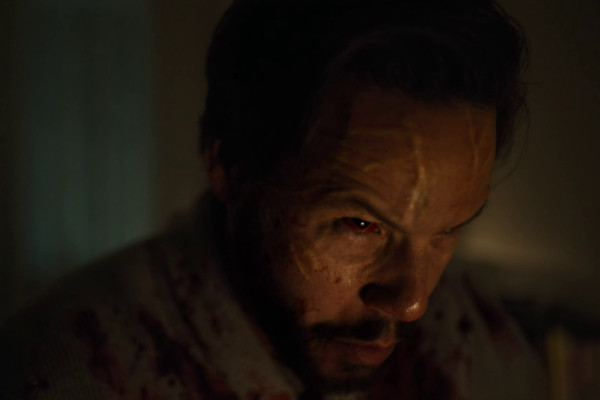
The Anorak Zone is well in touch with its feminine side and has no express issue with criticism of "toxic masculinity" and mistreatment of women... in fact, it welcomes it. But "Not All Men" goes too far, starting by having men turn into violent, murderous, would-be rapists when under a meteorite storm, then giving us the superbly offensive "twist" that the meteorites were only a placebo. Using a science fiction story to critique the entitled behaviour of men is one thing... having that story tell us that half the world's population would turn to rape and murder if they only believed they were possessed by alien rocks is another, particularly when the largest demographic of the series is probably those very same men.
Men in fiction have had an easy ride historically, so I don't have an express issue with tuning into a TV show that redresses the balance, acknowledging that such plots are not devised from a level playing field. And here at the Anorak Zone, such trite complaints like "imagine if the situation was reversed..." would never be uttered. However, this is one time where that will be uttered, as the very concept of a television serial telling of women turning to violence and sexual assault under their own motives is just inconceivable. As a satire, this definitely could have worked, but as a straight drama... it's a whole new level of inappropriate content.
Lastly, the series scores a spectacular own goal in its look at diversity. Only one man in the episode is able to suppress his masculine instincts and become the "not all men" of the title... and he's gay. What is the episode trying to say here? Gay men aren't "real men"? Gay men are feminine? It's a staggeringly misconceived addition to a staggeringly misconceived 42 minutes of television.
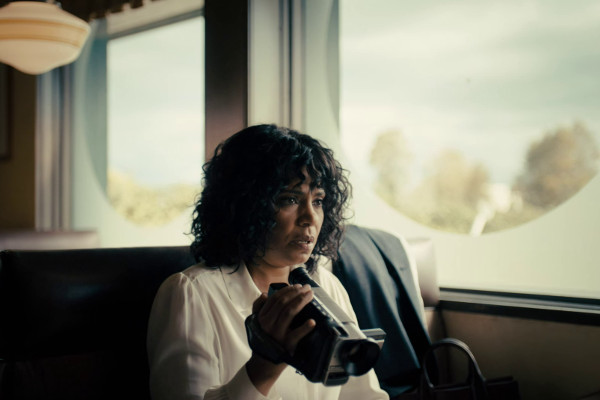
A story that features obsessional, repetitive behaviour that begins in a motorside cafe can't help but acknowledge Nick of Time's influence, so a Devil bobblehead is briefly seen, even if Richard Matheson doesn't receive any onscreen credit. (While perhaps most inspired by the classic series episode, the "device that rewinds time" motif - admittedly not the most original idea in the world - is closest to the 2002 episode Rewind, which was also the original title of this instalment).
The obsession in this nicely-played piece revolves around an old camcorder that can reverse time. Sadly, this version of the series can't help but spoonfeed its audience, and so while we have to have a character try to rationalise their situation by referencing pop culture (in this case, The Matrix) it goes even further by having a subtext so pronounced that it doesn't so much hit the viewers over the head, more bludgeons them to death.
Sanaa Lathan plays a mother so virtuous that, when she finds she can rewind the lottery announcement, she doesn't think to travel back to ticket-buying times, but merely uses it as a means to trick her home-leaving son into promising to visit her. Glenn Fleshler plays a bigoted cop so single-minded that he can even sniff out black people like a bloodhound, tracking them over miles, even if they're using a disused tunnel network. This last element presses the story too far into ludicrous territory, a world where metaphor or plot logic don't exist, and viewers are given no chance to interpret the episode when its whole purpose is constantly spelt out to them in ten foot letters.
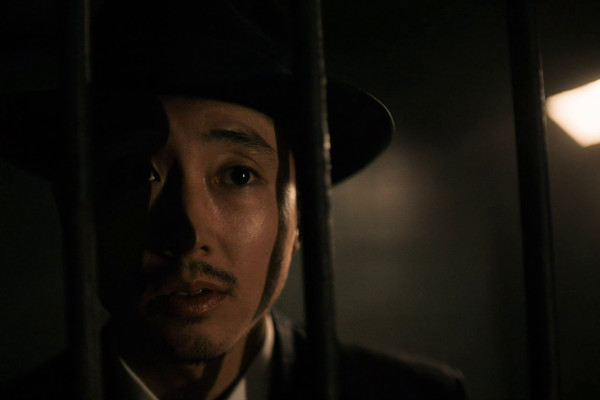
With so many of the early episodes underwhelming in nature, there's a natural psychological tendency to overrate any halfway decent instalment. This fourth story seemed a breath of fresh air on first viewing, given that it was simply okay, but falls apart under close scrutiny. Granted, its "step up into mediocrity" status sees it stay some way off the bottom of the ranking, but its mess of uncertain plot strands and scattergun targets (including shots at Russian collusion) fare badly under its exposition-heavy, "first draft" feel. The various narrative and character changes seem to borne not from natural development but from a need to keep the viewer guessing, making the whole thing a little disjointed.
The episode is the fifth Christmas story under the Twilight Zone banner, following two versions of The Night of the Meek, as well as The Changing of the Guard from the 60s and The Star from the 80s series. This does, at least, manage to be a bit more interesting than the latter, but certainly at the lower end of the TZ Christmas shows.
The closing narration by Peele seems to suggest that Christmas is a "myth", which has already angered those who were politicised against the series' new, more overt liberal leanings. The original series was often there to provoke thought... the 2019 version often just seems there to provoke.
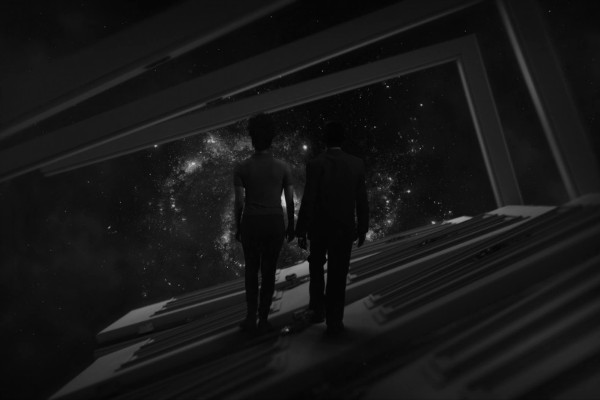
The original Twilight Zone ended its first season with the narrator realising he's just a character in a TV show, so it's fitting that this revival should partly go the same route. Featuring Jordan Peele playing "himself", along with the much-touted Seth Rogan appearance being just a glorified cameo, it centres on Twilight Zone obsessed writer Sophie (Zazie Beetz), who is followed behind the scenes by the blurryman of the title.
Unfortunately Sophie isn't a widely developed character, with most of her motivation being to say the F word as often as possible. If such a comment seems like a puritanical view of the series, then it kind of is, but then this is a show so in love with the original, "all ages" series that it even makes pains to give us a badly CGI'd Rod Serling at the end. Thankfully Rod's poorly-animated mouth doesn't give us a quick "MF", but it's an incredibly jarring clash of styles, like deciding to bring back Top Cat, but having Benny as a prostitute while Fancy-Fancy becomes a heroin addict.
The second-shortest episode at 37'42m, its brevity does save it some grace, and this is a nice, fun way to end the season. But it shows a series still yet to truly find its own voice and step out of the shadow of the original, and, while presented as an "innovative" episode, really doesn't present anything that hasn't been seen on TV before. In 2019, breaking the fourth wall and meta commentary are passé... but making well-written, compelling television has become something of a dying art.